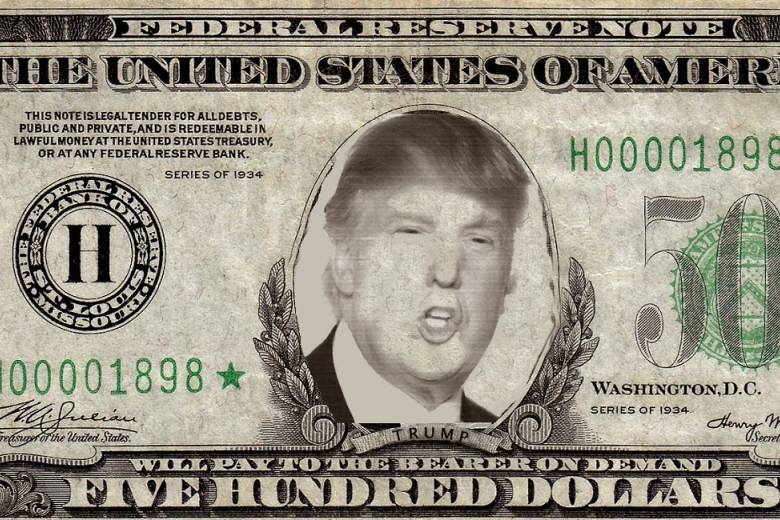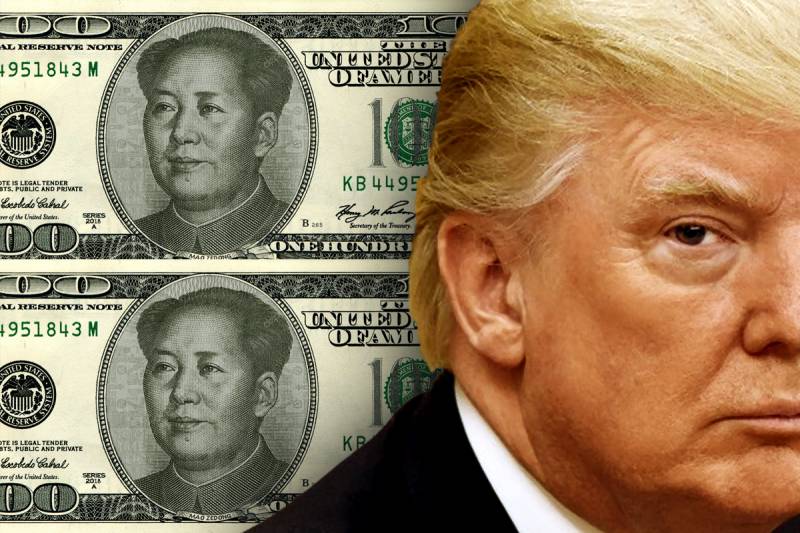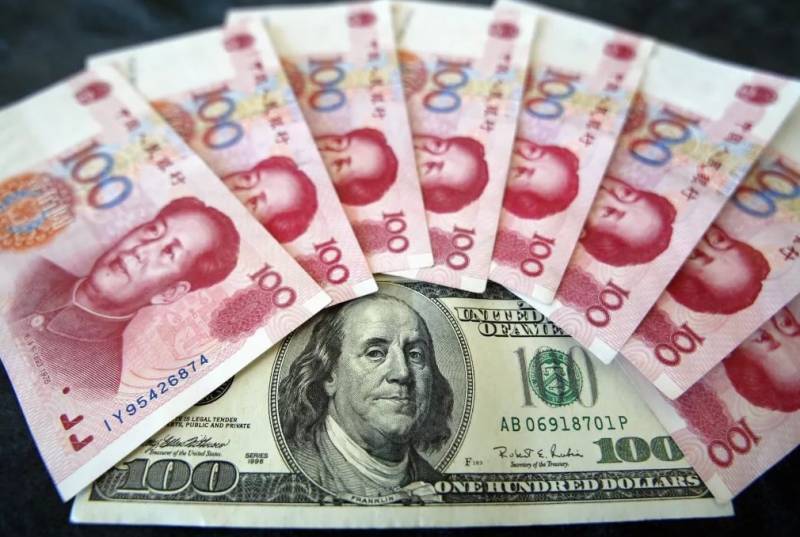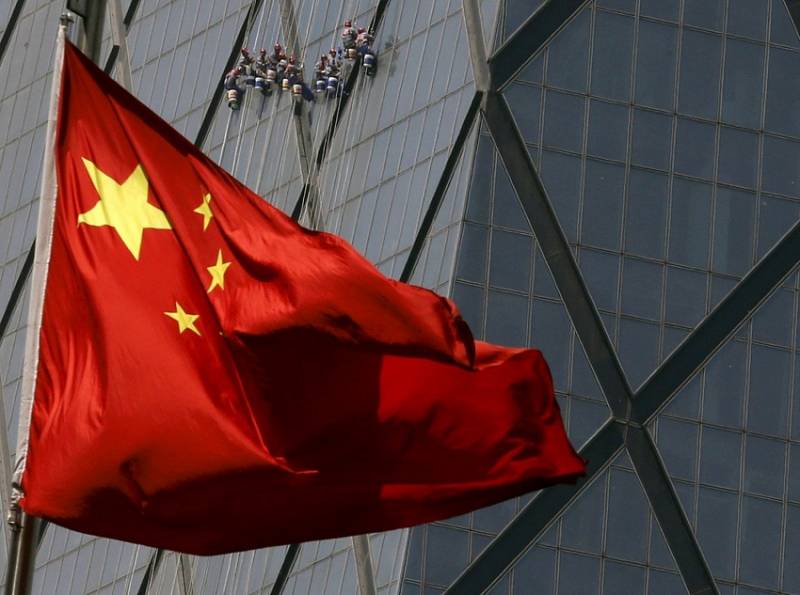The currency that replaces the US dollar
At one time, many countries in the world, including Iraq and Libya, attempted to get rid of dollar dependence. Both Saddam Hussein and Muammar Gaddafi at various times planned to abandon the dollar in payments for oil, which caused a very negative reaction from the United States. Washington, by and large, doesn’t care how a ruler governs his country. The main thing is that the results of his rule should not threaten the economic power of the United States and their interests globally. It would be naive to think that Muammar Gaddafi was a less harsh dictator than the kings of Saudi Arabia, and Saddam Hussein was inferior in cruelty to such Washington favorites like Augusto Pinochet or Alfredo Stroessner. But Hussein and Gaddafi planned to free themselves from the dollar dictates, for which they paid. Now China has started talking about the need to abandon dollar settlements in the field of oil trade.
In fact, Beijing turned to this topic back in the distant 1993 year, but then the PRC did not have enough resources to turn the dream into reality. Now they have appeared. China is the most powerful economy in the world after the United States, and according to some indicators, the Celestial Empire has already left “Uncle Sam” behind. China has enormous human resources, enormous economic and military potential; therefore, it is impossible to do with China as the United States did with Iraq or Libya. This is well understood in Washington and therefore very nervous about every step taken by Beijing.
Recently, the world has developed a more than favorable environment for the beginning of the substitution of the dollar with the yuan in oil settlements. China "went on the attack" precisely when the United States and the European Union were distracted by such large-scale problems as the Syrian and Ukrainian crises, migration flows, the election of Trump, the clarification of relations with the Russian Federation. At the end of 2017, it was announced that oil futures with denominations in Chinese yuan would begin trading on the Shanghai International Energy Exchange (INE). In one day, trading volumes on the Shanghai Stock Exchange amounted to almost 3 billion dollars. For comparison, for the entire 2017 year on the stock exchange in St. Petersburg, only 208 million dollars were traded.
What is the reason for China’s success in ensuring oil independence? Today, China is one of the world's largest oil consumers. This gives him a number of advantages in the promotion of the yuan as a means of settlement in the oil market. China's offensive in the global market is characterized by flexibility and softness. Beijing should be exactly the same as the precepts of the ancient Chinese philosophers, who believed that water sharpens a stone and you need to act carefully and consistently, methodically go to the goal. For China, the inclusion of the yuan in 2015 in the “basket” of reserve currencies of the International Monetary Fund, which includes the US dollar, the euro, the Japanese yen and the British pound sterling, was a great success. The yuan became the fifth currency on this list, but in reality it ranks third, ahead of the yen and the pound sterling. A number of European national banks announced the inclusion of the yuan in the number of reserve currencies, which also contributed to the strengthening of the Chinese payment unit in the global financial market. Banks of Germany, France, Belgium, Spain keep a part of their funds in yuan, rightly believing that the Chinese currency is reliable and stable.
The Chinese yuan has very great prospects, but they entirely depend on what line of financial policy the Chinese leadership will choose in the foreseeable future. So far, the yuan is not ready for a full-fledged entry into the world market. At the congress of the Chinese Communist Party, the task of internationalizing the yuan, that is, turning it into a global means of payment, was voiced among the priorities. However, this entails a number of risks. Now the official RMB exchange rate is much lower than this currency can actually be valued.
The artificial exchange rate of the yuan is beneficial to the Chinese leadership, which thus keeps the country's economy afloat. At the same time, many economists say that it is time for China to move on to the free conversion of the yuan. This will allow more active in the global market. However, since the Chinese economy is largely developing due to cheap loans, the country's leadership fears that if the yuan is allowed to float, the outflow of capital will begin, with extremely adverse consequences for the Chinese economy.
For China, another option is much more interesting - the creation of a parallel financial system in which all payments in settlements with China will gradually be transferred to the yuan. This will allow China to break free from the influence of the dollar and increase the security of the national economy. However, many countries in the world are very afraid of turning the yuan into an international payment instrument, including the United States and such a long-time geopolitical opponent of China as India. They believe that international currencies should be freely convertible.
US President Donald Trump has repeatedly accused China of deliberately undervaluing the value of the yuan in order to ensure the growth of the Chinese economy. Calling the Celestial Empire "a great manipulator", Trump believes that it is the undervaluation of the yuan due to the lack of its free convertibility that provides the advantages of Chinese exports on the world market.
In the framework of strengthening the national currency and the gradual abandonment of dollar settlements, China is also implementing the “One Belt, One Way” strategy, the meaning of which is to integrate the Eurasian states into a single economic space more closely and on a large scale. The expansion of China's economic influence on a Eurasian scale is possible only with the support of a strong yuan, so economists predict that the entire 2018 year will gradually strengthen the position of the Chinese currency. On the other hand, China will actively invest in the economies of Eurasia, increasing the participation of Chinese capital and making economic ties between countries closer. An interesting system of loans that China provides to Eurasian states is not given money, but equipment or labor. Thus, the work provided by Chinese companies.
The strategic importance for China, as noted above, is oil trading. Now most of the contracts with China are tied to the price of the Dubai brand. This also applies, by the way, to Russian oil supplied to China. It is Russia that is the main supplier of oil to the PRC, with Rosneft playing the main role in the supply of “black gold”. Now Russia has had the opportunity not to let a significant part of oil revenues from trade with China through dollars, but immediately send the funds received to gold.
At present, restrictions on the sale of gold in the vaults of the Bank of Russia have been practically lifted, both for legal entities and individuals. Since gold has been a universal payment instrument for thousands of years, Russia makes the right choice, increasing its gold reserves and gradually freeing itself from being tied to the dollar. Over the past year, the Bank of Russia has been pursuing a strategy of buying gold for rubles. It was possible to replenish the country's gold reserves by 200 tons, which increased the state reserve by 10%. Without the slightest threat of inflation, a significant emission of the ruble was carried out, that is, the state was able to solve a problem that until recently many economists and financiers considered it practically impossible.
Given the growing ambitions of China, will it be easy for the dollar to hold on to its leading position? To begin with, a paper dollar that is not backed by gold, like any paper currency, depreciates. There is nothing surprising. Analysis stories world currencies show that they all went through stages of birth, take-off, maximum opportunities, depreciation and death. The dollar is no exception. By the way, the average age of a currency is about 27 years, and the dollar as a paper currency has been around 47 years. That is, it is a very impressive term by world historical standards. Already after Donald Trump came to power, the dollar began to fall against the major world currencies.
USDX is the most authoritative world currency basket, which includes the euro, yen, pound sterling, Canadian dollar, Swedish krona and Swiss franc. If we take 100 for 1973 when the index was launched, then over the past 45 years the dollar has known both ups and downs. In 2002, the index soared to 120, and at the beginning of the 2010's. went down even below 80. By the end of 2016, the index reached the 103,65 point, but as soon as the inauguration of the new US President Trump took place, the dollar began to fall. The dollar index versus a basket of major world currencies fell to 91,93. By January 2018, the dollar index fell below 90 points.

What is the reason for the loss of American currency? Here the dependence of the economic and political spheres of society’s activity is most clearly manifested. The Donald Trump administration policy is weird and unpredictable. Donald Trump unleashed a global trade war, choosing China as the main target, and implicitly also aiming at Russia. But the beginning of the trade war was a strategic mistake of the American president. First, the increase in duties on goods imported into the United States struck not only in China, but also in the closest allies and partners of the United States, including European countries. Secondly, countries suffering from the policy of Trump began to look for other markets, which also can not affect the position of the dollar.
In addition to the trade war, Trump's policy is characterized by a number of other mistakes and miscalculations. So, a very large influence on the position of the dollar has a personnel leapfrog in the US administration. When Donald Trump came to power in the wake of populist slogans, he did not have his own team. Trump began to select and assign to key positions random people who are not members of a single team. One of the main criteria for selection was the media, which also had a negative effect on the professionalism and coherence of the actions of the team of the American leader. Since every prominent representative of the Trump team adheres to some personal views, the market simply does not know what to expect from the current American government. There is no stability in the presidential administration - it is not in the markets either.
As for the domestic economic problems that the United States is facing now, they are also related to the activities of the Trump administration. Military preparations, a rise in defense spending negatively affect the country's public debt, which continues to grow. Trump leads a very adventurous foreign policy, which causes an increasingly negative reaction from the global community.
On the other hand, Trump set his sights on restoring the American industrial infrastructure, which also requires huge financial injections and contributes to an increase in US domestic debt. Already in the first year of President Trump’s reign, the United States’s national debt increased by 1 trillion dollars. Accordingly, the already impressive costs of servicing the US public debt are increasing, which can be up to 25% of the US budget.
The situation is not the best, and this can not affect the position of the American currency. The position of European currencies is strengthening, primarily the euro, the British pound sterling. The Japanese yen feels good. Naturally, against this background, the positions of the Chinese yuan began to grow. Although in international payments the share of Chinese currency does not yet exceed 2%, it is very significant in China’s trade with individual countries of the world, especially with the states of Europe and Asia. Thus, more than half of settlements between the PRC and Singapore, South Korea, the United Arab Emirates, France, Spain and a number of other states are carried out in yuan. The yuan also accounts for 20% of settlements in trade between China and Japan. Of course, the positions of the yuan can not yet be closely compared with the positions of the dollar, but it is worth noting that quite recently the yuan was not considered as an international currency at all, and economists who would talk about the prospects of the Chinese currency would be considered insane. The world is changing and the place of the dollar in it is put into question.



Information